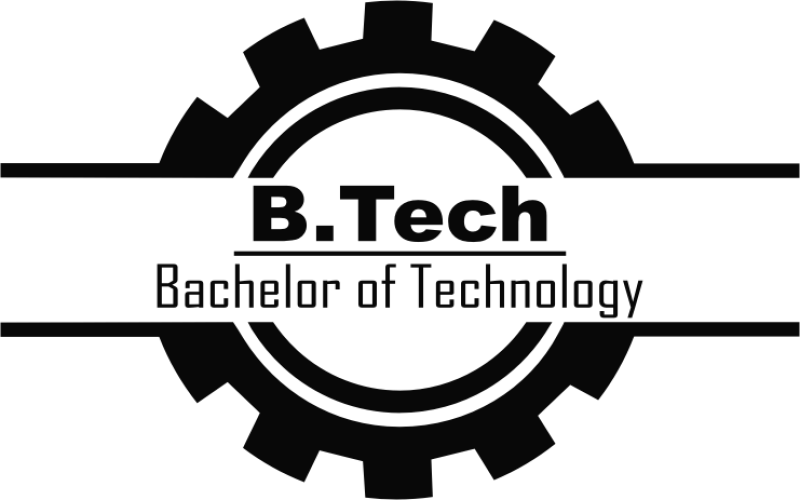B .Tech
A B.Tech (Bachelor of Technology) is a popular undergraduate degree in India and many other countries, focusing on engineering and technology. The course generally spans 4 years and covers various fields of engineering, including Computer Science, Mechanical, Civil, Electrical, Electronics, and more.
General B.Tech Course Structure:
The course is divided into 8 semesters (2 semesters per year), and it usually includes:
- Core Subjects: Fundamentals of engineering and specific branches (e.g., Mathematics, Physics, Chemistry, Engineering Drawing, Programming).
- Elective Subjects: Specialized subjects based on the student's field of interest (e.g., AI, Robotics, Renewable Energy).
- Practical Labs: Hands-on experience in labs and workshops.
- Internship/Project Work: Industry exposure and research-based projects in the final year.
Specializations Available in B.Tech:
- Computer Science and Engineering (CSE)
- Mechanical Engineering
- Electrical Engineering
- Civil Engineering
- Electronics and Communication Engineering (ECE)
- Information Technology (IT)
- Aerospace Engineering
- Biotechnology
- Chemical Engineering
- Automobile Engineering
- Civil Engineering
- Environmental Engineering
Admission Process:
- Entrance Exams: Admissions to B.Tech courses are often based on entrance exams such as:
- JEE Main/Advanced (for IITs, NITs, IIITs, and many other colleges)
- State-Level Exams (e.g., MHT-CET, WBJEE, KEAM)
- University-Level Exams (e.g., VITEEE, BITSAT, SRMJEEE)
- Direct Admission: Some private universities also admit students directly based on their previous academic performance or management quota.
Fees for B.Tech Courses:
The fees for B.Tech courses vary based on the institution, course specialization, and location. Here's an approximate range:
-
Government Colleges:
- Tuition fees typically range from ₹50,000 to ₹2,00,000 per year.
- Additional fees (registration, exam, library, etc.) might cost around ₹10,000 to ₹30,000 per year.
-
Private Colleges/Universities:
- Tuition fees can range from ₹1,00,000 to ₹3,50,000 per year, and in some prestigious private universities, it could even go up to ₹5,00,000 per year.
- Additional fees for facilities and other services can range from ₹30,000 to ₹1,00,000 per year.
-
IITs & NITs:
- For IITs, the tuition fee is around ₹2,00,000 to ₹2,50,000 per year, excluding hostel and other costs.
- NITs typically have a fee structure in the range of ₹1,00,000 to ₹1,50,000 per year.
Scholarships and Financial Aid:
- Many universities and institutions offer scholarships based on merit or financial need. Scholarships can cover partial or full tuition fees, and some are based on entrance exam performance or previous academic achievements.
- There are also government scholarships like PMSSS (Prime Minister's Special Scholarship Scheme), MHRD Scholarships, and private scholarships.
Career Prospects:
After completing a B.Tech, graduates have various opportunities, including:
- Higher Studies: Pursue M.Tech, MBA, or other specialized courses.
- Job Opportunities: Engineering graduates can work in various industries like IT, manufacturing, construction, energy, telecommunications, and more.
- Public Sector Jobs: Appear for competitive exams like GATE, UPSC, and others for jobs in government departments (e.g., Indian Railways, DRDO, ISRO, etc.).
- Entrepreneurship: Start your own business or tech venture.
Conclusion:
The B.Tech course provides a strong foundation in engineering principles, and the fee structure varies based on the institution. Students should research their desired institution’s fee structure, scholarships, and admission process before applying.


